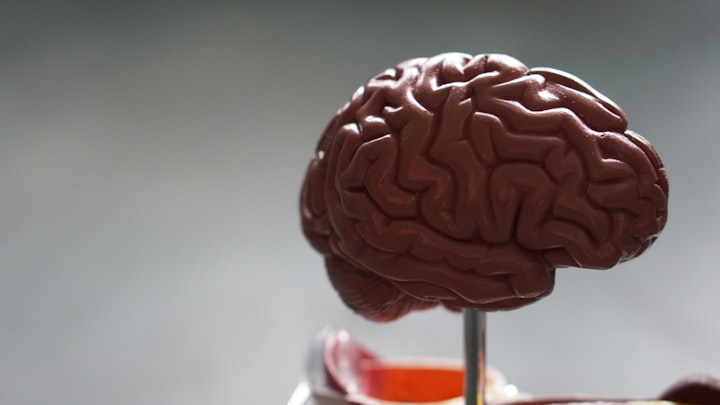Unveiling the Diet of a Harvard and MIT Scientist
A Path to Smarter Eating

Introduction
In a world teeming with advice on how to enhance cognitive abilities, the quest for optimal brain health often leads individuals down a labyrinth of options, from memory games to high-tech gadgets. However, according to experts like Dr. Jeffery Karp, a biomedical engineer affiliated with Harvard and MIT, the key to unlocking your brain's potential lies in the foods you consume daily. With insights from Dr. Karp's upcoming book, "LIT: Life Ignition Tools," we delve into his meticulously crafted diet designed to ignite brainpower and foster overall well-being.
Breakfast: A Brain-Boosting Powerhouse
Dr. Karp begins his day with a meticulously curated breakfast bowl brimming with nutrients tailored to fuel both body and brain. This concoction is strategically crafted to enhance cognitive function, stabilize mood, and fortify brain health. Key components of his morning feast include:
Dry Rolled Oats: Rich in complex carbohydrates and B vitamins, oats provide sustained energy release crucial for maintaining focus and cognitive performance.
Nuts Galore: From walnuts and macadamia nuts, packed with omega-3 fatty acids, to baru nuts, offering a mix of protein and essential minerals, nuts play a vital role in supporting brain cell structure and function.
Golden Milk Powder: Infused with turmeric and black pepper, this blend harnesses the anti-inflammatory and antioxidant properties of curcumin to protect brain cells from oxidative stress.
Seaweed Flakes: A source of iodine essential for brain development, seaweed also boasts unique bioactive compounds with potential neuroprotective benefits.
Hemp Seeds: Rich in omega-3 fatty acids and gamma-linolenic acid, hemp seeds combat brain inflammation and promote overall brain health.
Brain Berries: Blueberries, revered as "brain berries," are packed with flavonoids that delay brain aging and enhance memory.
Catalina Crunch Cereal: Known for its low-carb, high-fiber, and high-protein content, this cereal stabilizes blood sugar levels and supports gut health, thereby promoting cognitive function.
Fortified Oat Milk: Enriched with essential nutrients like B vitamins and vitamin D, oat milk contributes to cognitive function and mental well-being.
Alternatives for Breakfast Haters
For those averse to oatmeal, Dr. Karp suggests eggs served on wholegrain toast. This protein-rich option, coupled with whole grains, offers a steady energy supply essential for sustained focus and productivity.
Lunch and Dinner: A Low-FODMAP Approach
Dr. Karp adheres to a low-FODMAP diet, particularly beneficial for managing symptoms associated with gastrointestinal disorders like irritable bowel syndrome (IBS). By avoiding fermentable carbohydrates found in certain foods, this diet aids in identifying trigger foods and alleviating digestive discomfort.
Hydration: The Brain's Lifeline
Adequate hydration is paramount for optimal brain function, influencing concentration, cognition, and mood regulation. Dr. Karp ensures sufficient hydration by consuming water with electrolytes throughout the day, supplemented by flavonoid-rich beverages like cacao.
Omega-3 Fatty Acids: Brain's Best Friend
Omega-3 fatty acids steal the spotlight for their pivotal role in enhancing cognitive function and emotional well-being. Found abundantly in fatty fish, these fatty acids build cell membranes, facilitate communication between brain cells, and reduce inflammation, thereby improving memory and mood.
Additional Brain-Boosting Foods
Antioxidant-Rich Foods: Berries, leafy greens, and vitamin E-rich nuts and seeds protect the brain against oxidative stress and promote healthy aging.
Caffeine and L-Theanine: Present in coffee and green tea, these compounds enhance alertness, attention, and focus, fostering a state of calm alertness without anxiety.
Green Tea as Coffee Alternative: Green tea, with its caffeine and L-theanine content, offers similar cognitive benefits while promoting a sense of calm alertness.
Dietary Restrictions and Timing
Dr. Karp advocates limiting sugar, alcohol, and red meat consumption, as excessive intake may impair cognitive function and brain health. Consistency in meal timing stabilizes blood sugar levels, ensuring a steady energy supply to the brain. Intermittent fasting, characterized by cycles of eating and fasting, has emerged as a promising strategy for enhancing brain health by reducing oxidative stress and promoting brain cell growth.
Exploring Adaptogens: A New Frontier
Dr. Karp's journey to optimize mental clarity and overall health includes experimenting with adaptogens like lion's mane, chaga, reishi, and maca. These natural substances hold promise for enhancing resilience to stress and supporting well-being.
In essence, Dr. Jeffery Karp's dietary regimen serves as a roadmap to smarter eating, illuminating the profound impact of nutrition on cognitive function and overall well-being. By embracing nutrient-rich foods and adopting mindful eating practices, individuals can harness the power of nutrition to fuel their brains and ignite their potential for greatness
Reference:
(GQIndia: https://www.gqindia.com/content/the-real-life-diet-of-a-harvard-and-mit-scientist-who-says-the-right-diet-can-make-you-smarter )





Comments
There are no comments for this story
Be the first to respond and start the conversation.